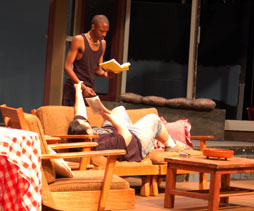By Paul Treske and Charity Montieth/reporters
In colleges and universities across the nation, tuition is going up faster than inflation on an annual basis.
Many students are questioning the association between price and quality of their education.
John Strassburger, president of Ursinus College, a small liberal arts institution in Pennsylvania, was quoted in a December article in The New York Times.
Strassburger said that he remembers the day the chairman of the board of trustees told him the college was losing applicants because of its tuition. It was too low.
Ursinus raised tuition more than 17 percent and included a personal laptop in the spring of 2000.
The school received more than 200 applicants compared to the year before. Within four years of the increased tuition, the freshman class saw an increase of 35 percent to 454 students.
The obvious conclusion was if the college costs more, it must be better.
“ It’s bizarre and embarrassing, but it’s probably true,” Strassburger said.
This situation is not unique to Ursinus. Many universities and colleges have bumped tuitions.
The University of Richmond, Notre Dame, Rice and Hendrix College have all raised tuition to remain competitive. The average cost for tuition, fees and room and board is $30,367.
Many institutions charge more. At George Washington University, the total is $49,000.
“ You’re trying to create the best educational experience for your students, and that costs money,” Tom Tritton, president of Haverford College, said in the same Times article. “I sometimes say to parents, ‘I can
make it cheaper if you want.’ ”
One reason for this increase is because institutions of higher learning often try to emulate one another.
For private four-year institutions, which are the most expensive, the price has increased 81 percent from 1993 to 2004. This number has more than doubled the inflation rate, according to the College Board.
According to the University of Calgary’s 2006-2010 business plan, maximum tuition increases are planned for each of the next three years.
This will raise tuition for full-time undergraduate students from the current $5,210 per year to a predicted $6,295 by 2009-10. The rate for graduate students is expected to increase from $5,408 to $6,543.
Local universities are going up as well.
Jessamy Brown, a Fort Worth Star-Telegram staff-writer, outlined the tuition at North Texas. Tuition for spring 2007 was $1,845, and next semester will see an increase to $1,965.
UTA’s fees are on the rise as well; the total for room and board is listed at $11,400 on its Web site.
For Tarrant County College, in-county residents pay $50 per credit hour, in-state/non-county residents pay $63, and non-state residents pay as much as $150.
This rate is an increase of $4 per credit hour over the past three years, in $2 increments, Richard Inman, director of business services, said.
“ The good news is there is currently no plan to increase the rate for fall 2007,” Inman said.
Inman said TCC’s tuition does not increase to remain competitive. One reason for TCC’s increases is, in part, associated with reduced funding from legislative sources.
“ But there has been a concerted effort to make sure that the burden is not overtly extended to the individual student,” he said. “The systematic $2 increase each year has prevented dramatic adjustments of a sporadic nature.”
Cathie Jackson, director of admissions and records, said that in spite of tuition increases, TCC still offers the most reasonable buy in education in the state—if not the country.
“ Several years ago, we eliminated all fees—lab, student activities fee, records, etc,” she said. “This is a tremendous savings for most students, particularly compared to many other colleges/universities, which often charge as much in fees as tuition.”
According to an excerpt from an article in Student Life Newspaper in California, “While slightly fewer than half of the students at the colleges pay the actual sticker price in tuition, the report released by the College Board highlights a frightening trend in American higher education.”
Gaston Caperton, College Board president, said, “Neither student aid funds nor family incomes are keeping pace with college prices. This is a serious problem that must be addressed.”
Ian David Campbell Newfound, president of North Carolina Wesleyan College, said in the Times article, “People don’t want cheap” when it comes to tuition.



























